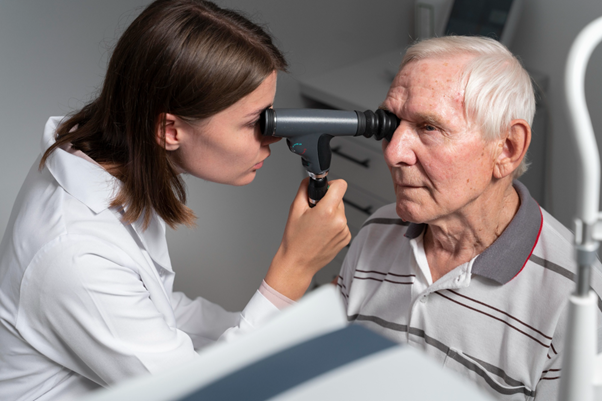Cataracts are a common eye problem that affects many people, especially as they age. Here’s a straightforward look at cataracts, their causes, symptoms, and treatment.
What Are Cataracts?
Cataracts occur when the lens in your eye, which helps you see clearly, becomes cloudy. This cloudiness makes your vision blurry as if you’re looking through a foggy window.
What Causes Cataracts?
Several things can lead to cataracts:
- Ageing: As you age, the lens in your eye can become cloudy.
- Genetics: You might be at higher risk if cataracts run in your family.
- Eye Injuries: Previous eye injuries can cause cataracts to form.
- Medical Conditions: Diseases like diabetes can contribute to cataracts.
- Sun Exposure: Too much UV light from the sun can increase your risk.
- Lifestyle Factors: Smoking and heavy alcohol use can also raise your risk.
What Are the Symptoms?
Cataracts develop slowly, and you might notice:
- Blurred Vision: Things may look fuzzy or out of focus.
- Trouble Seeing at Night: The glare from lights can make it hard to see.
- Light Sensitivity: Bright lights might bother your eyes or create halos.
- Faded Colours: Colours seem duller than usual.
- Double Vision: Seeing double images in one eye.
How Are Cataracts Diagnosed?
An eye doctor can diagnose cataracts with:
- Vision Test: Checks how well you see at different distances.
- Slit-Lamp Exam: Uses a special light to look at your eye’s lens.
- Retinal Exam: Allows the doctor to see inside your eye and check for cataracts.
How Are Cataracts Treated?
Treatment depends on how severe the cataracts are:
- Mild Cases:
- Glasses or Contacts: New prescriptions can help improve your vision.
- Magnifying Lenses: Good for reading and close-up tasks.
- Severe Cases:
- Surgery: The cloudy lens is replaced with a clear, artificial lens. This is a standard and safe procedure done on an outpatient basis.
What to Expect After Surgery
- Care: Follow your doctor’s advice on eye drops and medication.
- Recovery: It may take a few weeks for your vision to fully improve.
- Check-Ups: Regular visits to your eye doctor to ensure your eyes are healing well.
How to Reduce Your Risk
While you can’t always prevent cataracts, you can lower your risk by:
- Wearing Sunglasses: Protect your eyes from UV light.
- Avoiding Smoking: Quit smoking to help keep your eyes healthy.
- Managing Health Conditions: Control chronic conditions like diabetes.
- Eating Well: A diet rich in fruits and vegetables supports eye health.
Cataracts are a treatable condition that can blur your vision but are easily managed properly. See your eye doctor if you notice any symptoms like blurry vision or trouble seeing at night. Early detection and treatment can help you maintain clear vision and a better quality of life. If you have concerns about cataracts, talk to your doctor for advice and treatment options.


